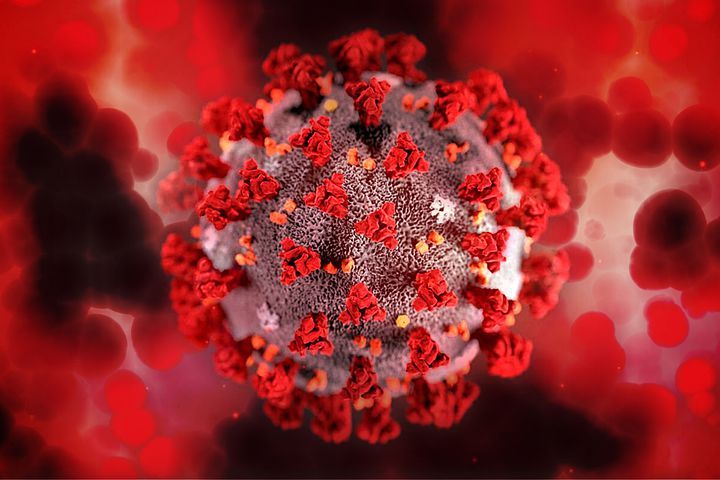The new Omicron variant of the Covid virus, originally spotted in South Africa, has reached France, but is it really something to be worried about?
On Sunday evening, the French Health Ministry reported eight cases of the latest headline-making Covid variant, dubbed Omicron, on their shores. These numbers have been gleaned from passengers who have tested positive after trips to Africa in the past two weeks.
The hype around the variant has been at near-fever pitch, with explanations stating how different it is from other variants thus far and what that means in terms of spread and mortality rates.
Whilst there is still much to be learned about Omicron, early reports from experts have been quite encouraging.
Scientists who work for the Scientific Advisory Group for Emergencies (SAGE), the body of scientists who are closely monitoring the Covid virus for the UK government, have said the variant “is not a disaster” and that people may be “hugely overstating the situation”.
Whilst it has been labelled a variant “of concern” by the World Health Organisation (WHO), it has not been proven to be more lethal than the Delta variant or resistant to current vaccines.
Asked whether people should be fearful of the new variant, SAGE’s Professor Semple told BBC Breakfast: “This is not a disaster, and the headlines from some of my colleagues saying ‘this is horrendous’ I think are hugely overstating the situation. Immunity from the vaccination is still likely to protect you from severe disease. You might get a snuffle or a headache or a filthy cold, but your chance of coming into hospital or intensive care or sadly dying are greatly diminished by the vaccine and still will be going into the future.”
These comforting words are backed by on-the-ground reports from South Africa, where the variant is thought to have originated, with hospitals and doctors’ offices across the country saying basically the same things: that it is unusual, but very mild.
Roughly 90% of all new cases in Johannesburg are now of the Omicron variety, but death rates and hospitalisations remain about the same. This is giving rise to a theory that this infectious but less deadly form may actually eradicate the more serious Delta variant, a possibility that some health care professionals are looking at as a blessing in disguise.
Omicron has over 30 mutations, about twice the number of Delta, which does make it more transmissible, but if symptoms remain in the mild category, the mutation may turn out to be a positive.
Dr Angelique Coetzee told various newspapers in South Africa that “Symptoms are so different and so mild from [non-Omicron] Covid patients I have treated before.”
Looking at the first data coming out of Southern Africa, virologist Marc van Ranst said this weekend that “if the Omicron variant is less pathogenic but with greater infectivity, allowing Omicron to replace Delta, this would be very positive.”
Of course, there is no certainty on this and the situation will continue to be closely monitored, but these initial reports are a glimmer of positivity in what has been a long, dark road.
Vaccine makers are already looking at ways to tweak the doses using the genetic sequence of Omicron and say testing and manufacturing could begin in weeks.
Despite the lack of severity, Omicron is causing an already jittery European Union and UK to put measures in place to stop the spread until more is known. Flights from several African nations have been suspended and, in some cases, testing on passengers has been instated, whether the passenger is fully vaccinated or not.
After last year’s disastrous holiday season, no leader wants to be the Grinch who Stole Christmas a second year in a row, so for now, erring on the side of caution seems to be the way to go.
Omicron has arrived
